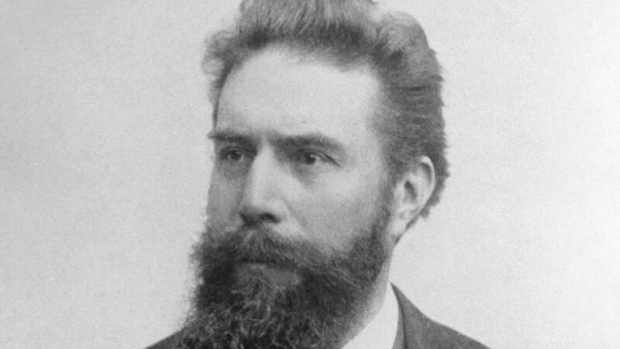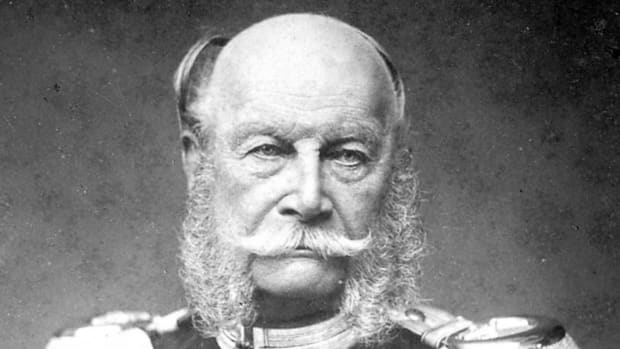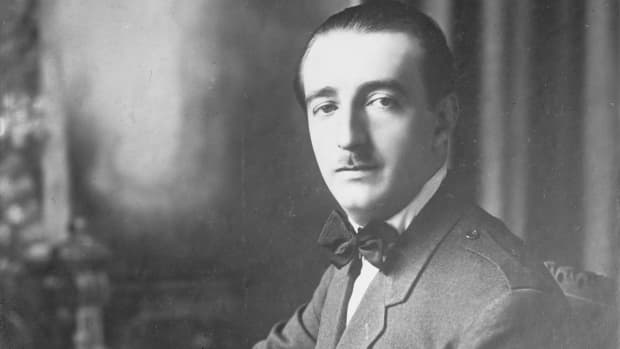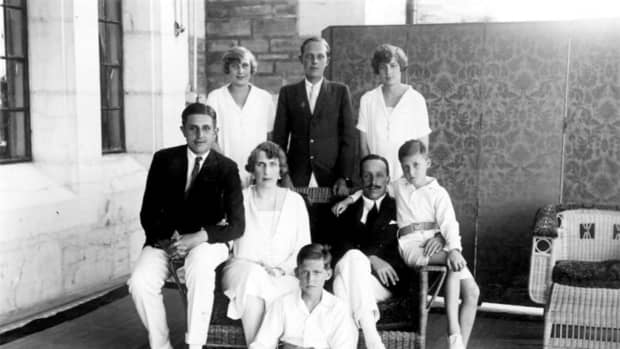Spencer Perceval: Britain's Only Assassinated Prime Minister
Son of the 2nd Earl of Egmont
Spencer Perceval was a lawyer and barrister before a political rise that culminated in him becoming the Prime Minister of Britain in 1809.
Born in fashionable Mayfair, London, on the 1st of November 1762, Spencer was the son of the politician and confidante of King George III John Perceval, 2nd Earl Egmont and his second wife Catherine Compton.
Spencer was named after his great-great-uncle, British Prime Minister Spencer Compton, 1st Earl of Wilmington (1674-1743), who was considered Britain’s 2nd Prime Minister in history; the 1st was fellow Whig Party politician Robert Walpole.
Spencer was 1 of 16 children fathered by the earl and his 7th son, so despite the family's considerable wealth, Spencer grew up knowing that he would have to fend for himself financially as an adult.
Called to the Bar, the Midlands Circuit
Spencer Perceval was sent to the public school Harrow, and he attended the prestigious Trinity College at Cambridge University to study law. He excelled and won prizes, but he also grew into a deeply conservative and uncompromising man.
Spencer's legal training began in 1783 when he was employed at the iconic Lincoln's Inn, London. The Honourable Society of Lincoln's Inn was and remains 1 of 4 inns administering legal practices across England and Wales.
In 1786 he was called to the bar, the traditional way of saying he was asked to be a judge. He used his family associations to secure a position on the Midlands Circuit covering central England, and he soon had a thriving practice.

Spencer Perceval eloped with Jane Wilson when her father refused to allow them to marry.
Wikipedia Public Domain
Spencer Perceval and Jane Wilson Elope
Despite his strait-laced nature Spencer caused a stir in society when he eloped with Jane Wilson on her 21st birthday in 1790. Although her father Sir Thomas Spencer Wilson had approved the union of his daughter Margareta with Spencer Perceval’s brother Lord Arden he vetoed Spencer and Jane’s marriage until Spencer's legal career brought him great riches.
The couple ran away to East Grinstead in Sussex which lay approximately 30 miles from London. They returned to the capital as husband and wife. Their first home was in rooms above a carpet shop. They were devoted to each other and had six sons and six daughters.
In 1796 Spencer Perceval was appointed to Kings Counsel, he was an approved judge in George III’s highest courtrooms. He started his political career the same year by writing pamphlets including a work arguing for the arrest of the notorious Governor-General of Bengal Warren Hastings (1732-1818).
He was fortunate that William Pitt the Younger, the country’s youngest ever Prime Minister at 24, noticed the pamphlets and offered Spencer a job as the Chief Secretary of Ireland. Spencer Perceval refused the role because his legal career was more financially rewarding.

British Prime Minister Spencer Perceval (1862-1812) remains the only PM to have been assassinated.
Wikipedia Public Domain
Tory Prime Minister Spencer Perceval
When Pitt’s government fell in 1801 the new Prime Minister Henry Addington, Viscount Sidmouth appointed Spencer Perceval to the prestigious role of Solicitor General. The following year he became the Attorney-General.
Recommended
In March 1807 William Cavendish-Bentinck, 3rd Earl of Portland became the Prime Minister. Spencer Perceval served as his Chancellor of the Exchequer and Chancellor for the Duchy of Lancaster. On 4th October 1809 he was successful in becoming the earl's successor as Prime Minister.
Spencer Perceval was assured in his view that slavery must be abolished (it was in 1807) but equally determined that Catholics should not be emancipated. He was remarkable for the power of his conviction in the Catholic matter and it earned him enemies. Religious intolerance could easily have been his downfall if one man hadn’t made up his mind to eliminate the most powerful politician in the land.
John Bellingham Assassinates the Prime Minister
Liverpool businessman John Bellingham shot Spencer Perceval in the House of Commons lobby on the early evening of 11th May 1812. His reason? Bellingham claimed that the Prime Minister had failed to notice his requests for assistance about a complaint for outstanding compensation.
Secondly, the government’s unrelenting strategy during the Napoleonic Wars, the cost of which was causing severe hardship across Britain affected Bellingham. He was driven to shoot Spencer Perceval in the chest from a short distance away.
Spencer Perceval was 49 years old when he died and to date, he is the only British Prime Minister to have been assassinated. His last words were, reportedly, “murder” or “oh my God.” Parliament made generous provision to Jane Perceval, Spencer’s widow, and their children.
Robert Banks Jenkinson, Earl of Liverpool was appointed as the next Prime Minister and he held the office for 15 years before ill health forced him to resign.
Fears of a Post Assassination Uprising
In the poorest parts of the country Spencer Perceval’s death was celebrated as hopes rose that the British war efforts under a new Prime Minister would ease the hardships being endured.
Initially the government feared that an uprising would follow the assassination but this did not occur. It transpired that Bellingham had acted alone although whether the assassination was part of a larger plot to improve the lot of Liverpool’s traders has been debated.
Bellingham’s sanity was questioned and his lack of remorse won him no sympathy. He was given a swift trial, sentenced to death and he was executed at Newgate Prison on the 18th May 1812. For some people, the haste applied to his case seemed to lack a sense of justice.
Spencer Perceval is one of the least remembered Prime Ministers of Britain. If recalled at all, it is normally his death rather than his achievements that are examined.
Note: The Catholic emancipation question rumbled on unresolved until the Catholic Emancipation Act of 1829 which was passed by Prime Minister Arthur Wellesley, 1st Duke of Wellington.
Suggested Reading
- 20 Facts About Winston Churchill
Winston Churchill was one of the greatest wartime leaders of the 20th century. Despite a privileged upbringing, he was a low achiever at school and had a rocky military and political career. - 5 Shortest Serving British Prime Ministers
Liz Truss resigned as the Prime Minister of the UK after only 55 days in office, but is she the shortest serving of all? This article covers British Prime Ministers that served the shortest time.
Sources
- Spencer Perceval – prime minister of United Kingdom | Britannica
- History of Spencer Perceval | Gov.uk
- Spencer Perceval | Historic UK
This content is accurate and true to the best of the author’s knowledge and is not meant to substitute for formal and individualized advice from a qualified professional.
© 2022 Joanne Hayle










